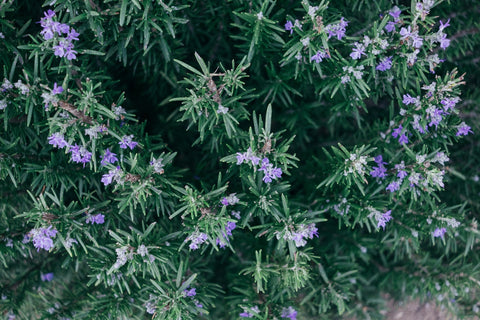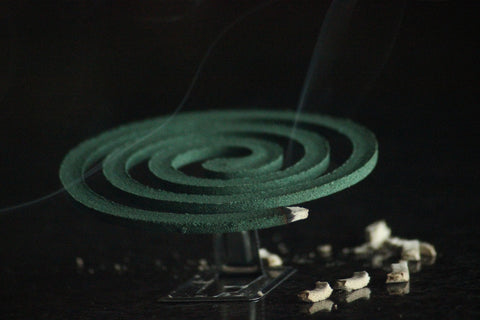February 17, 2023
There's so much to enjoy about summer: getting outside to enjoy the longer days with a barbecue or spending time in your pool.
But there is one thing that will send most people back inside - mosquitoes
Unfortunately, the warmer months also mean mosquitoes. Mosquitoes might seem like an annoyance that you can easily swat away, but they can be a big problem.
They not only make it impossible for you to truly enjoy your backyard, but they can also spread diseases.
Using bug spray can help keep them away, but they are almost impossible to avoid completely unless you plan to stay inside all summer.

There are steps you can take to greatly reduce, or even eliminate mosquitoes from your backyard during summer.
Most are fairly simple and just require a little understanding of what attracts or inhibits a mosquito
The payoff can be summer without itchy bug bites, giving you more time to enjoy your yard.
Most mosquitoes will be looking for blood throughout the night but from late afternoon through until early evening is when you really need to protect your family.
Here are some ideas to help you have a mosquito-free backyard:
The first thing to do is to fix any areas where you have standing water in your backyard or close to your home.
Why is important to ensure your backyard does not have any standing water areas? Mosquitoes lay their eggs anywhere they find moisture – the eggs feed on bacteria found in water. The most common mosquito biting Australians, the aedes notoscriptus is “found in pot plant soils, bird baths and rainwater tanks in our backyard.
Any container – doesn't matter how small it is – that traps a bit of water in the backyard … you can find this mozzie moving in.
The good thing is that they can't fly very far (less than 200 metres), so if you can eliminate breeding spots on your property, you can greatly reduce the number of mosquitoes near your house.
Scan your entire lawn for possible standing water areas. Dark-coloured containers in the shade are mosquito favourites. Change the water in watering cans and birdbaths every few days so that mosquitoes don't get nutrients.
You'll also need to check for water pooling by weeds, clogged drains and trays under flower pots. If your swimming pool is filtered and well chlorinated you needn't worry about that though. Turn over a kiddie pool or wheelbarrow when it's not being used.
Cover any water-holding containers that you can't remove
You don't need your plants to suffer when stopping mosquito breeding. Fill pot plant saucers with sand, it traps moisture but stops water sloshing about that mosquitoes would otherwise breed in.
Removing standing water areas is one of the most cost-effective and oldest ways of mosquito control. Do this exercise all summer so that you're not left scrambling at the last minute. It's especially important to run this drill after it rains.
If you're feeling adventurous, in summer you can check for mosquitoes in a water source by dipping a cup in the standing water. You might see mosquito larvae the size of your fingernail squiggling around.

Natural favourites such as citronella provide only limited protection from mosquitoes but are a good component of any multi-faceted mosquito repelling strategy.
Mosquitoes are attracted to carbon dioxide (which everyone breathes out) and citronella is thought to act as a mask, covering up scents that attract mosquitoes.
The oil comes in candles and can be poured into Survivor-esque torches.
You can also get wearable bands and bracelets for those most susceptible to bites.
Most importantly, it is a safe and non-toxic method of repelling mosquitoes.
Citronella isn't just what's found in bug sprays and candles, it's a real herb you can buy or grow yourself to add to your fire. Its strong smell wards off mosquitoes, letting you enjoy your night bite free.
The best mosquito-repelling plants for your garden are lavender, marigolds, citronella grass, catnip, rosemary, basil, scented geraniums and more.
Their leaves and flowers emit smells that naturally deter mosquitoes and other insects.
Have you ever noticed that insects or even rabbits and other animals have never decimated your lavender plant?
It is because of their lovely fragrance, which comes from the essential oils that are found on the leaves of the plant.
It is even argued that lavender oil hinders a mosquito's ability to smell!
This plant is very tough and drought-resistant once established and only needs full sun and good drainage. And while it can endure many climates, it thrives in warmer areas.
Marigolds, an easy-to-grow annual flower, emit a smell that deters mosquitoes.
Grow them in pots and place them near your patio or entrance to your home to keep bugs out.
Marigolds are also a popular addition to borders and vegetable gardens.
Known for its distinct smell, citronella grass (or lemongrass) is the most commonly used natural ingredient in mosquito repellants.
This low-maintenance plant does best in large planters because it cannot withstand frost, but in warmer climates, can be planted directly in a sunny area in the ground.
Catnip (catmint) can be found thriving almost anywhere. It is from the mint family and grows abundantly both as a commercial plant and as a weed.
It is very easy to take care of and may even start to invade other areas of your garden.
However, if you are willing to forgo this plant's insidious nature, they are amazing mosquito repellants.
In a study at Iowa State University, catmint was found to be ten times more effective than DEET, the chemical used in most insect repellants.

Another great mosquito repellant is rosemary.
Rosemary is a herb that many of us are very familiar with and its woody scent is exactly what keeps mosquitoes as well as cabbage moths and carrot flies away.
They do best in hot and dry climates and thrive in containers, which may be ideal for areas with winters.
They can also be pruned into all sorts of shapes and sizes and make great borders or decorations. While the pests stay away you can enjoy the herb's scent and also use it to season your cooking.
Basil is another herb that can also double as a pest repellent.
The pungent smell the basil leaves give off is what keeps pests at bay.
And since all kinds of basil work to keep flies and mosquitoes at bay, feel free to explore and find the right types of basil to mix into your garden.
This herb likes to be kept damp, needs good drainage, and enjoys lots of sun. You can plant basil in containers or in the garden, alone or with other flowers, as long as both plants meet the same requirements.
Scented geraniums are also a popular mosquito-repelling plant.
The favoured scent seems to be lemon-scented, which is reminiscent of citronella grass.
The strong fragrance keeps several types of pests away. These fast-growing plants like warm, sunny, and dry climates, but if you are in a cold-climate area, they can be grown in planters with constant pruning.
Want to attract good bugs like bees and butterflies, while deterring the bad ones?
The bee balm, also known as Monarda or horsemint, is the plant for you.
Simply crush its leaves to release the fragrant oils. Plus, you'll get to enjoy colourful flowers, in shades of red, pink, lavender, white, or purple, all summer long.

In addition to water, mosquitoes like to hang out in cool, shady spots.
Shady areas near trees, tall grass or brushy areas are ideal mosquito habitats, so focus on getting rid of those spots.
As a bonus, the more sunlight that reaches your yard, the less likely you are to have wet or damp spots that foster mosquito breeding, disease or even mildew.
While preventing mosquito breeding grounds controls them at the egg stage, you also need to deter adult mosquitoes. These insects like to move around under cover when it's hot – the lower limbs of shrubs (their source of plant nectar), shade trees and weeds. Weeds and tall grass are magnets for mosquitoes since they are quiet places.
Cut your grass short and thin your branches. Trim and prune your shrubs and bushes. The lesser areas there are for bugs to hide in, the lesser bugs there'll be. For shaded areas, a professional pest control application will reduce mosquito harbourage sites.
Citronella candles have long been used to repel mosquitoes, but other forms of light can help with backyard mosquito control as well.
Consider replacing your outdoor lightbulbs with so-called “bug lights.” These special bulbs are yellow and emit light at a wavelength that doesn't attract bugs.
Although these lights alone will not keep the mosquitoes away, they can help prevent the large swarms of bugs that tend to happen around lights and reduce the number of mosquitoes near you.
Bug-repelling lanterns can also keep the biters at bay. These butane or battery-operated lanterns emit repellent when they are on, giving you a light for your evening activities and repellent to keep the bugs away.
Stay away from the so-called “bug zapper” lights, though. Electrocuting light traps don't kill too many mosquitoes. Unlike moths and lots of other insects, mosquitoes aren't attracted to light, they'll stay away. They may actually kill more beneficial insects.

A mozzie-repelling classic - the smell of them will transport you back to the family holidays of your childhood - and they're still a good option today.
Mosquito coils, when lit, provide a bite-free zone when dining outdoors.
The lit coils provide a citronella and/or sandalwood aroma which helps to keep mozzies away. Look for coils that are environmentally friendly.
A topical insect repellent, especially one that contains diethyltoluamide (DEET) or picaridin or oil of lemon eucalyptus, will provide the longest-lasting protection.
Repellents containing plant extracts such as citronella or tea tree oil will need to be applied far more frequently to protect against bites.
When it comes to repellents, a dab “here and there” isn't enough to stop the bites. Apply insect repellent as a thin covering on all exposed areas of skin for the most effective protection.
There's a reason you see fans on porches in areas known for mosquitoes.
Not only do they help keep you cool, but fans can also help keep mosquitoes away.
The breeze helps to disperse the carbon dioxide emitted by humans that attracts the bugs, while also making it more difficult for the bugs to land.
If you have covered outdoor areas, consider installing ceiling fans; otherwise, just use oscillating fans around the areas where people congregate to drive the bugs away.
Many outdoor activities take place on your deck or patio. If mosquitoes are bugging you, there are things you can do to protect this space.
Enclose your deck and patio. Mosquito screens can be placed around the space to keep mosquitoes out.
You can also install an outdoor fan. Mosquitoes struggle to fly against the wind, which will make it harder for them to reach you.
Spraying the area with a plant-based Mosquito Fogger can help to kill and repel these pests
The best mosquito control for your backyard requires a multi-faceted approach.
Remaining diligent about removing standing water is the best way to keep them away, but when that isn't enough, more aggressive techniques may be necessary.
If you follow these steps, you can effectively reduce the number of mosquitoes in your yard and enjoy your time outside this summer.
Comments will be approved before showing up.
December 05, 2025
Transform your dining table into a stylish and functional hub for everyday life. Learn simple tips for balancing décor, function, and maintenance, from choosing the right centrepiece to creating clear zones for meals, work, and family activities. Discover how intentional styling can make your table inviting, practical, and effortlessly beautiful every day.
October 29, 2025
Transform your patio into a naturally fragrant retreat with smart, wind-aware scenting. Discover the easiest way to scent an outdoor space using micro-zones, low-volatility oils, and living plants that work with Australia’s climate—not against it. Learn how to create an inviting atmosphere that lasts long after the breeze passes.
October 22, 2025
Pressed for time but still want a beautiful outdoor table? Discover quick outdoor table styling tips you can pull together in just 15 minutes using what you already own. Learn how to create a calm, wind-proof, and welcoming setting that looks effortless—and feels even better.

